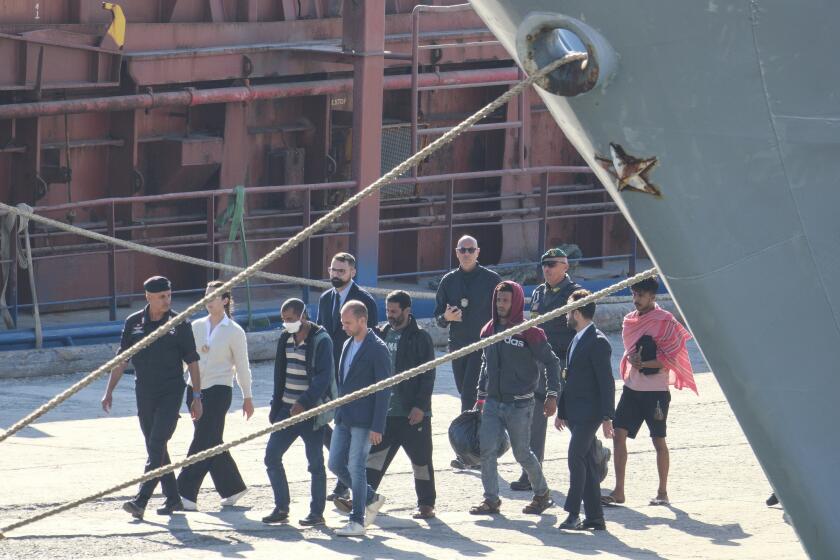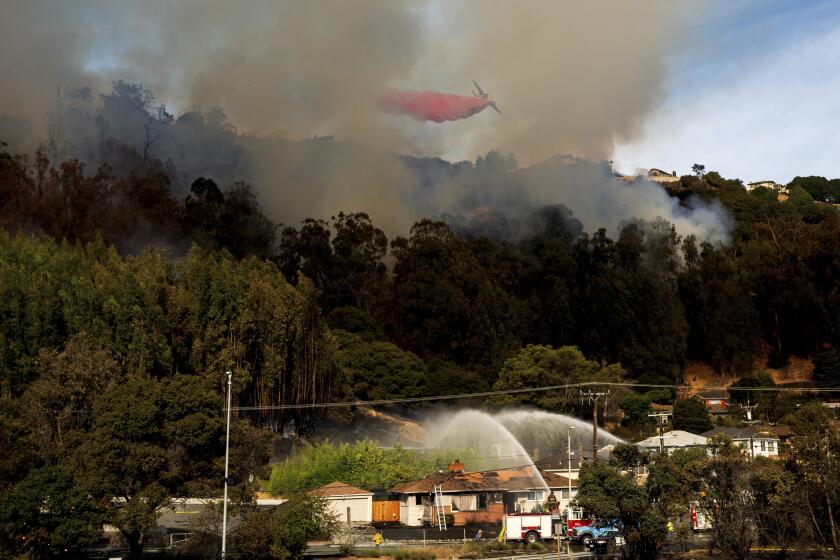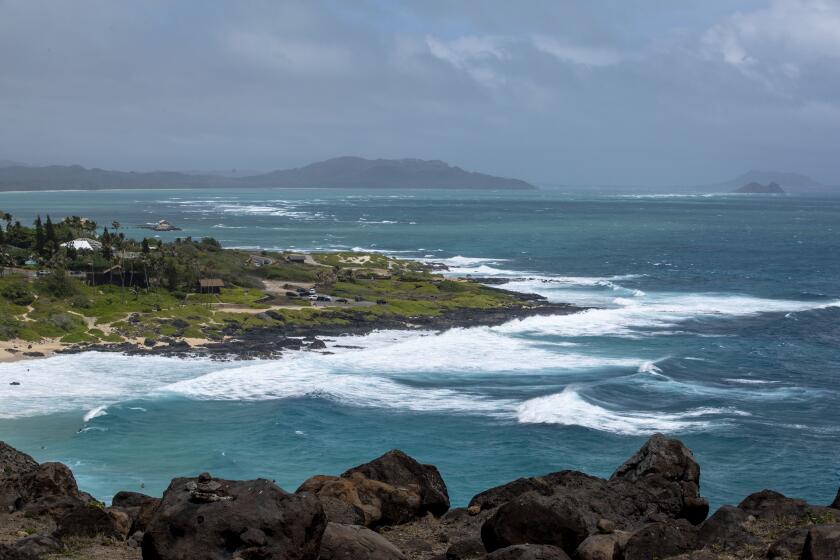They’ve Become Candidates for Citizenship : Immigrants: By making the paperwork far easier, a coalition of Asians and Latinos hopes to tap into a vast, new source of voters.
On her 10th birthday in the summer of 1958, Maria Urena and the rest of her family of eight piled into two cars for the hot 1 1/2-day trip from Chihuahua, Mexico, to Los Angeles.
Her first view was overwhelming and scary--a new city and a new American life. They were birthday presents that she didn’t want and couldn’t give back.
Times were tough at first: She was forbidden from speaking Spanish in school, and her 15-year-old sister sat on the front porch every day, crying and singing softly to herself in Spanish.
Thirty-four years later, Maria Urena says she is in love with a suitor that she once rejected: The United States.
Urena was among 50 San Gabriel Valley immigrants Saturday who signed up for a pilot U.S. citizenship drive, sponsored by a coalition of Asian and Latino groups that is trying to reach a new pool of potential voters. The Citizenship Outreach Project drew many people, such as Urena, who needed a little push--by way of an easy sign-up process--to finally call themselves Americans.
Urena, a 44-year-old clerk in the Monterey Park city manager’s office, said she had invited her older sister to come along, the one who had cried every day for two years at their new home. Her sister, she said, declined because she still feels more Mexican than American. Urena, on the other hand, who got married and raised three sons here, said she feels in her heart that she is an American.
“It’s like when you become in love with someone,” said Urena, explaining why it took her so many years to sign up for citizenship. She was sitting next to her husband, Salvador Urena, who also was filling out his citizenship papers. “It takes more than just a week.”
The Urenas, who spoke in English, had to raise their voices above the din of Tagalog, Mandarin, Cantonese and Spanish speakers. Eighty volunteers--15 of them attorneys and many bilingual--scurried about, answering questions and translating.
The Citizenship Outreach Project, which wants to make the sign-up process as easy as possible, provided volunteer assistants, forms, fingerprinting, identification photos and sample citizenship tests so that immigrants could take care of their paperwork in one stop without hiring an immigration attorney.
Project volunteers also check, and then file the citizenship applications with the U.S. Immigration and Naturalization Service. Some immigrants said they had put their citizenship effort off for decades, partially because of the trouble involved.
The day was organized by the Asian Pacific American Legal Center with help from the National Assn. of Latino Elected and Appointed Officials and the city of Monterey Park’s literacy program. The organizers said they put on the project after becoming alarmed by statistics on immigrant voting: According to a 1990 U.S. Census Bureau study, California leads the nation in the number of residents--3.7 million--who cannot vote because they are not U.S. citizens.
A UCLA Asian Pacific American Voter Registration Study showed that only 4.1% of the Vietnamese voting-age population is registered. And in Monterey Park, with a population that is 56% Asian, only about a third of the Asians are registered to vote, according to City Councilwoman Judy Chu.
Organizers decided to start in Monterey Park and plan to expand to other communities with large immigrant populations. The paperwork is the first step; if papers are in order, applicants face a wait of nine months to a year for an INS interview and citizenship test, and then another three months for a swearing-in ceremony.
“It’s a shame our government has so many roadblocks for people who want to enter the mainstream,” said organizer Michael F. Eng, an immigration lawyer. “The faster these people enter the mainstream, the better country we’ll have.”
He looked at the growing line of people standing patiently, waiting to get an identification photo and fingerprints, some with relatives snapping photographs.
“Hopefully,” Eng said, “a person here might run for office someday.”
Monterey Park resident Maria Consuelo, a Mexican immigrant, can’t wait to get her citizenship so she can vote, an urge she feels each election.
“Every time, I feel I wanted,” she said, shaking a fist in frustration. Consuelo, a U.S. resident for 42 years and the mother of seven, said she never had the time to put together her citizenship application.
“We had been trying to do it, but the time goes,” said Consuelo, who declined to give her age.
UCLA psychology major Helen Mao said she also is looking forward to voting and feeling closer to her adopted country.
“I’ll be part of the United States,” said Mao, 20, who came from Hong Kong five years ago. “I’ll feel more obligated to the United States.”
Others said they have been in the United States so long that they already feel a part of it.
“I thought I may as well be a citizen,” said Shek Ying Fong, 78, a Monterey Park resident and Hong Kong native who has lived in this country for 55 years.
More to Read
Sign up for Essential California
The most important California stories and recommendations in your inbox every morning.
You may occasionally receive promotional content from the Los Angeles Times.










